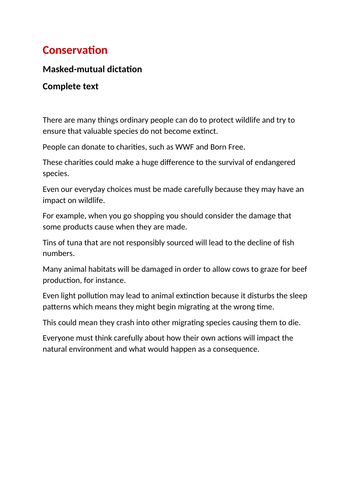MudurELT
My 25+ years working with English Language Learners of General English, Business English, EAL, EAP, ESOL, EFL, ESL with people from all over the world aged 11- 65+ have led me to develop teaching materials that are authentic and engaging. My materials are designed to stimulate interest and encourage critical thinking. I want my students to be confident speakers, to develop a set of transferable skills and become independent learners.





